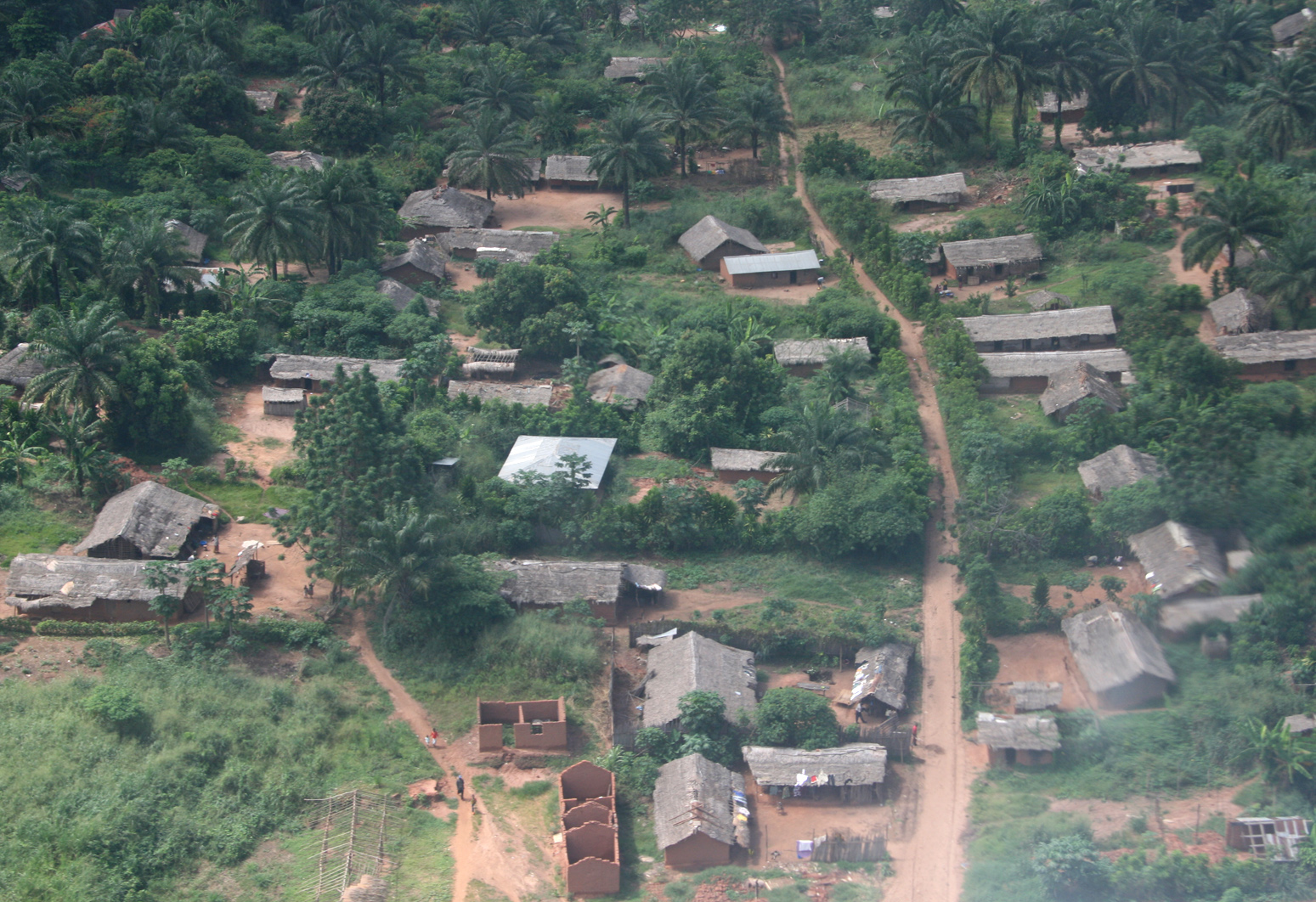“It’s calm now. We have the situation under control,” Ndangobo Ngoy, a lieutenant-colonel in the DRC army, told IRIN in Dongo, an Equateur town that was attacked in October 2009, prompting almost its entire population, some 100,000 people, to take flight, mostly across the Ubangi river into the Republic of Congo (RoC).
“The population is in an extreme state of fear, but they can come home now with no problem,” he added.
Human rights activist Clement Moombo agreed: “War has left the area,” he told IRIN.
Moombo, who heads an organization called The Voice with no Mouth, said the attackers were armed with assault rifles, rocket launchers and knives, and wore civilian clothes.
He identified them as part of the Lobola ethnic group - comprising the Enylele, Mtobi and Vako - which has long competed over natural resources, notably fish ponds, with the Boba, the majority in Dongo.
“They came to take our harvest. We had left the crops in the fields,” added Moombo, who, like Ngoy, said the movement appeared to have no clear political agenda and no apparent military training.
“They burnt the houses of seven members of my family,” he said. Dongo’s market was also torched during the attack, but has since been partially rebuilt. “Now, since I have been back [a week], security is okay here. But there is a lot of fear and speculation.”
|
Photo: Anthony Morland/IRIN  |
| Have no fear... DRC's army says it is in control of Dongo and that it is safe for the displaced to return |
According to Moombo, the insurgency, known variously as the Independent Liberation Movement and Allies, and Nzobo Yalobo, the Lingala term for “new military groups”, is “winding down; aside from a few cases of resistance, it is in decline”.
According to several reports, the group’s 26-year-old leader, Odjani Mangbama, was arrested in Mombendzélé, RoC, a region hosting about 120,000 refugees from Equateur.
Details are sketchy and conflicting but it seems the arrest took place on 4 May, a few days after IRIN visited Dongo as part of a delegation led by UN humanitarian chief John Holmes.
A police source in Brazzaville said Mangbama surrendered to security forces and had been transferred to the capital, pending his extradition to DRC. Mangbama’s arrest could help convince the refugees in RoC and Central African Republic it is safe to return home.
“We hope that this development, if confirmed, will lead towards improved stability in the areas concerned,” said Maurizio Giuliano, spokesman for the UN Office for the Coordination of Humanitarian Affairs.
“This is an essential condition for the return of the displaced. On the humanitarian side, we are working to ensure that assistance is available in the prospective areas of return, so that IDPs and refugees who choose to return can do so,” he added.
Aid gaps
Accessing the refugees in RoC is very difficult for humanitarian agencies because they are scattered along 600km of the banks of the Ubangi, whose waters are too low to carry large barges. The presence of armed insurgents and bandits on the river has also impeded relief efforts.
| Homeward bound |
| Life across the river in RoC was so harsh for Jean Tongol Longi, who witnessed the October attack on Dongo, where he sells medicines for a living, that returning home was not a difficult decision. “People there gave us food, but only once. We made huts out of leaves and fished in the river for food. We stayed in the huts for five months. We only had the clothes we had brought with us. Many of us got sick. The soldiers beat us, they were not welcoming. We suffered so much,” he told IRIN. “When [the DRC army] came into Dongo, they sent people over to fetch us. I came back to find my house burnt down. Everything I owned is gone: my motorbike, my store of maize and peanuts, my kitchen utensils, beds. They took it all. I haven’t even been able to rebuild my house, because I am too busy trying to find food. “What we need now is for the road to be mended, houses to be built and health facilities restored.” |
For its part, the RoC government is keen to rid itself of the refugee burden.
“Some of them are armed,” said Minister of Humanitarian Action Emilienne Raul, citing army units deployed along the Ubangi. “These refugees absolutely must be disarmed and diplomacy stepped up to resolve the problem.”
Joseph Kumuondala Mbimba, archbishop of Mbandaka, capital of Equateur, called on the international community to help bring back the refugees.
Mbimba added that much needed to be done to make conditions adequate for return.
Addressing a press conference after visiting Equateur, Holmes said there was still “a great need for humanitarian assistance” in the province and that conditions for the return of the displaced had to be put in place.
“They are not ready to return. Their houses have been burnt and looted. Medical centres and schools need rehabilitating,” he said.
See also: Congo's refugee crisis
am/lmm/mw
This article was produced by IRIN News while it was part of the United Nations Office for the Coordination of Humanitarian Affairs. Please send queries on copyright or liability to the UN. For more information: https://shop.un.org/rights-permissions




